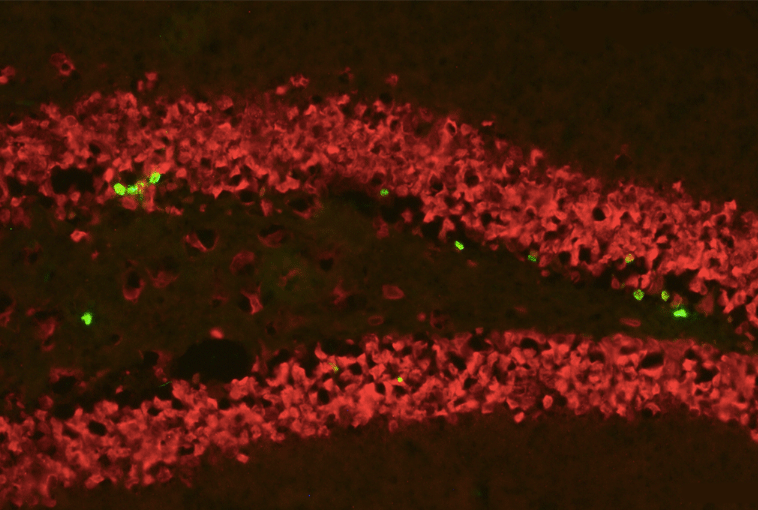
Study Links Increased Touch to Enhanced Neurogenesis in Adult Mice; Stereo Investigator Used for Quantification
According to scientists at the Hotchkiss Brain Institute in Calgary, Canada, there is evidence for increased neurogenesis in adult mice reared by two parents. Their study also describes other interesting findings, such as the fact that increased neurogenesis persists in the next generation, or that the effects of differences in rearing affect males and females differently.
Using Stereo Investigator to perform a stereological assessment of proliferating cells in the brains of adult mice, the scientists found differences between males and females raised in three different circumstances: with their mother, with their mother and father, or with their mother and another female caregiver.
Compared with male mice raised only by their mothers, male mice raised by two parents had approximately twice as many newly born cells in the dentate gyrus, a part of the hippocampus associated with memory formation while females raised by two parents had more proliferating cells in white matter regions, specifically the corpus callosum, as well as the spinal cord.

Representative fluorescent micrograph of BrdU-NeuN double-labeled cells in the DG of males raised in the maternal paternal environment.
The research team doesn’t know exactly what role these new brain cells play, but behavior tests showed increased motor coordination and sociability in the female mice. Male mice had a stronger reaction to contextual fear tests, suggesting enhancements in memory and learning.
Observing that mice raised by two parents experience more licking and grooming than their single-parent peers, the researchers speculate that an increase in touch triggers a physiological response that leads to the genesis of new neural cells in adulthood.
“It is possible that bi-parental care increases the expression of specific neurotrophic factors or alters reproductive hormonal levels to influence neural stem cell proliferation and cell fate decisions in the germinal regions of the adult mammalian brain,” the authors say.
Mak, G. K., Antle, M. C., Dyck, R. H., & Weiss, S. (2013). Bi-Parental Care Contributes to Sexually Dimorphic Neural Cell Genesis in the Adult Mammalian Brain. PLOS ONE, 8(5), e62701. doi:10.1371/journal.pone.0062701


